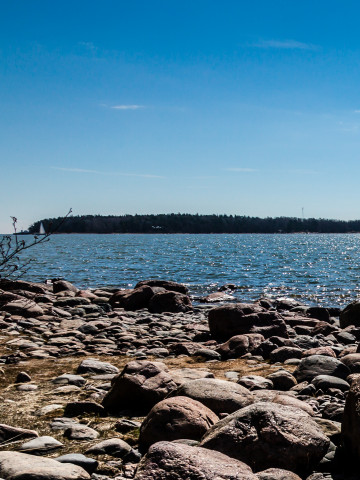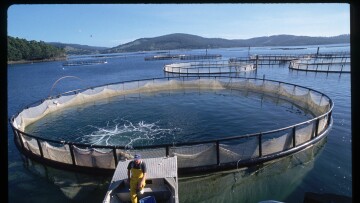
Sustainable Coastal Management
Students in the Degree Programme "Sustainable Coastal Management" writes about their studies and share their thoughts on different environmental issues.
Pharmaceuticals in Aquaculture

Aquaculture is one of the fastest growing industries in Europe. Growing demand for fish and shellfish gives business opportunities to farmers who are ready to take up the challenge to fulfil those needs. European aquaculture sector is very diverse but only half of seafood is farmed leaving the other half imported. Intensification of the industry is naturally needed to meet the public demand but at what cost...?
Salmon, shrimp, mackerel, tuna, rainbow trout or other seafood farming is much more prone to diseases than wild caught product. Of course, if it is done under strictly monitored and controlled conditions, it is possible to reach the highest quality standards from the beginning to the end. Unfortunately, along with intensity, there go problems. Lower immunity, health or reproductive problems are some of the many issues intensive seafood farming is facing. It is much easier for infectious diseases to spread in the water than it is on the land.
National, and international regulations approved a variety of pharmaceutical medicines that do not compromise a food safety for human consumption. Those include antibiotics, vaccines, or preventive medicines. One of the tactics preventing from human ingestion of any medicinal residue in the fish is the 'withdrawal period' that gives enough time between the end of the treatment and harvest of the animal. In comparison with 1990 when the use of antibiotics was at its peak, the overall use of those drugs has significantly decreased. For example, the use of antibiotics in seafood farming in Norway has lowered because of development of a batter vaccine. In 2004, Norway produced 23 times more salmon and trout than in 1985; in the same period, the use of antibiotics dropped by a factor of 25. (CONSENSUS). Unfortunately, not everyone tries to play fair and implement the healthiest solutions. China is the largest producer and exporter of aquatic products. However, the information about usage of antibiotics is very limited to public. Many seafood medications are not registered or are rejected due to high health risks, therefore their potential illegal usage can cause much more implications in human's health, for example causing cancer.
Bacteria, parasites, and fungal diseases also threaten aquaculture. European Animal Health & Welfare Research has published that limited availability of treatments and prevention tools is a serious constraint on the health management in fish farming. 304 different veterinary medicinal products are authorised for fish, against 10.000 for dogs and 8.000 for cattle. Half of them are vaccines, followed by antibiotics, representing the 29% of the treatments. Half of veterinary medicinal products are aimed to Atlantic salmon and trout (respectively 31% and 20%), while the 16% of them are directed towards a general category of fish. (FishMedPlus Coalition).
With the implementation of stricter rules and restrictions, pharmaceutical companies have more troubles registering medications and treatments for aquacultural use and their limited availability can lead to a massive product wastage that will not pass the health examinations for human consumption. Therefore, there is much more research to be done to find solutions for improvement for the seafood's and human's sake.
Personally, I first stopped eating fish for the ethical reasons, having in mind overfishing and bycatch. I could not determine whether the seafood I consume comes from a sustainable source or has it made its way to my plate by some other way. I want to be a responsible consumer and that requires me to be informed, seek scientifically backed up facts and not be ignorant, especially when it comes to my own health. I do not eat seafood and it is my own choice, what are you going to do about it?
Sustainable Coastal Managment
Students in the Degree Programme "Sustainable Coastal Management" writes about their studies and share their thoughts on different environmental issues.
Disclaimer: The author(s) are responsible for the facts, any possible omissions, and the accuracy of the content in the blog.The texts have undergone a review, however, the opinions expressed are those of the author and do not necessarily reflect the views of Novia University of Applied Sciences.